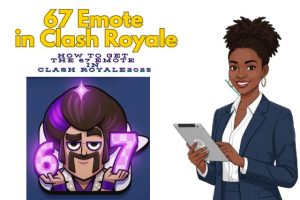
Piracy in Kenya
Piracy refers to the unauthorized use or distribution of copyrighted material. This act is prevalent in many forms, including music, movies, and software. In Kenya, it has become a pressing issue for artists and content creators.
This blog will explore what is piracy, provide examples from Kenyan media, discuss the arbantone genre of music, and highlight its penalties. Additionally, measures that artists can implement to prevent it will be examined.
What Is Piracy?
The piracy definition encompasses various activities, primarily focusing on the infringement of intellectual property rights. When individuals share, download, or distribute content without permission, they engage in piracy. This includes pirating movies, music, and software. The implications of piracy can be significant, leading to financial losses for creators and industries alike.
Examples in Kenyan Media
In Kenya, pirating has severely impacted local media. Many films and music albums are shared on piracy sites for movies. For instance, popular Kenyan films like Nairobi Half Life have been illegally distributed through pirate movie websites. This unauthorized sharing undermines the hard work of filmmakers and musicians, resulting in significant revenue loss.
Moreover, local artists often find their music available on pirated sites for movies and music platforms. These actions not only diminish their earnings but also affect the overall quality of creative work produced in the country. The emergence of pirating sites for movies and music highlights the ongoing struggle that Kenyan artists face in protecting their intellectual property.
Arbantone Genre: Piracy or Plagiarism?
The arbantone genre of music in Kenya has sparked discussions regarding its originality. Some argue that this genre, which combines traditional and contemporary sounds, often borrows from existing works. This raises the question: does arbantone music fall under piracy or plagiarism?
While piracy refers to unauthorized use, plagiarism involves claiming someone else’s work as one’s own. If artists in the arbantone genre appropriately credit their influences and seek permission, then it does not constitute piracy. However, if they utilize others’ works without acknowledgment, it may be considered plagiarism.
Ultimately, the distinction between piracy and plagiarism in this context is essential. Artists must navigate this landscape carefully to avoid potential legal issues.

Penalties for Piracy in Kenya
Piracy is a serious offense in Kenya, and various penalties are enforced to combat it. The Kenyan Copyright Act outlines these penalties, which can include hefty fines and imprisonment. Those found guilty of pirating may face a fine of up to KSh 1 million or a prison term of up to three years.
Furthermore, enforcement agencies have been established to monitor and tackle pirating activities. These agencies conduct raids on piracy sites and take legal action against offenders. However, enforcement remains a challenge due to limited resources and awareness among the public regarding its implications.
Measures Artists Can Use to Prevent it
To protect their work, artists can implement several measures against piracy. First, educating the public about the its impact on their favorite creators is crucial. Raising awareness can foster respect for intellectual property.
Second, artists should consider digital rights management (DRM) tools. These tools can help control access to their work and limit unauthorized sharing. By using DRM, artists can better safeguard their creations against it.
Third, engaging with legal advisors to understand copyright laws can provide additional protection. Knowledge of one’s rights and legal options is essential in navigating the complex landscape of piracy.
Lastly, artists can collaborate with local and international organizations dedicated to fighting piracy. Joining forces can strengthen their voice against it and create a more significant impact on enforcement efforts.
Read Also: How to make a Poster
Conclusion
In summary, piracy is a widespread issue affecting artists and content creators in Kenya. Understanding what it is and its implications is vital for both creators and consumers. With examples from Kenyan media, the challenges posed by it becomes evident. As artists continue to innovate and create, protecting their work must remain a priority.
Have you ever pirated anything? If so, what was your reason? Please share your thoughts in the comments.





